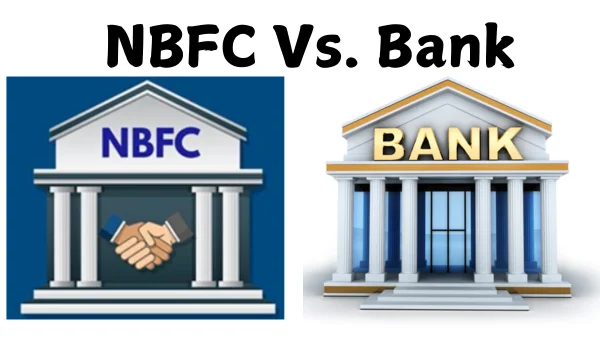|
Table of Content |
| Benefits of Getting a Loan from a Bank |
| Benefits of Getting a Loan from a NBFC |
| Key Considerations for Choosing Between Banks and NBFCs |
| Conclusion |
Small businesses need loans to grow, buy machinery, or meet daily operational expenses. In India, companies can obtain loans from banks or NBFCs. Both have pros and cons. As an MSME, based on your needs, credit history, and urgency, you would need to decide which financial institution you can opt to borrow small business loans, and invest the loan amount in areas of your business growth.
Also read: RBI Mandates NBFCs to Disclose Maximum Loan Rates to Enhance Transparency
Advantages of Business Loans from Banks
- Lower Interest Rates: Banks provide business loans at lower interest rates than NBFCs. As they are governed by the RBI and follow stringent guidelines, they lend money at lower rates, which is an economical way of financing.
- Longer Repayment: Banks generally provide loans with extended tenures of This benefits MSMEs to repay their cash with ease in the form of lower EMIs.
- Larger Loan Amounts: Banks are a better choice if your company requires a large loan. They offer higher loan amounts, particularly for companies with good credit
- Trust and Reliability: Banks are established institutions and are more reliable than NBFCs. Most companies prefer banks due to their stability and government support.
- Other Services: Banks do not just provide loans. They also provide other financial services like business accounts, credit cards, overdraft facilities, etc. which can prove to be helpful for the development of a business.
Also read: Private Banks and NBFCs Poised to Lead Market Rally in 2025: Insights from Sunil Subramaniam
Advantages of Taking a Loan from an NBFC
- Simpler Approval Process: NBFCs have a less strict approval process than They are less concerned with credit scores and more about the potential in business, hence it is simpler for small enterprises to obtain loans.
- Quick Loan Disbursement: If you want funds on an urgent basis, maybe to grab the market opportunities, then NBFCs will support you with an instant business loan. These loans are disbursed fast, often in a couple of days and sometimes a few hours, whereas banks take weeks.
- Easier Eligibility Criteria: NBFCs offer loans to businesses with poor credit scores or minimum financial history. This is convenient for small enterprises that might not have stringent bank specifications.
- Less Paperwork: Banks insist on numerous documents, such as financial statements, tax returns, and collateral evidence. NBFCs, however, involve little paperwork, so it is easier for business owners to apply.
- Personalized Loan Terms: Numerous NBFCs provide customized loan If your business has specific requirements, an NBFC can be more accommodating with regard to repayment schedules and interest rates.
Major points in Choosing between Banks and NBFCs

- Interest Rate: Banks provide lower interest rates, so if you wish to keep costs low, banks are the way to go. But if you wish to get your loan approved faster and want the freedom to choose repayment terms, an NBFC might be the best option despite paying a bit higher interest rate.
- Loan Amount & Repayment Tenure: Banks give more amounts with longer tenures, whereas NBFCs give less amounts with less tenure. Decide as per your business requirements.
- Disbursal Speed: If you need money quickly, NBFCs are quicker, usually by transferring the loan amount directly into your bank account with minimum time.
- Credit Score and Eligibility: Banks have strict eligibility criteria, including a good credit score and financial history. If your credit score is low, an NBFC might be a better choice, as they also look at other factors like your business turnover, projects closed-upcoming projects, etc.
- Paperwork and Documents: Banks request a lot of paperwork, while NBFCs require minimal documentation. In case you are looking for easy loan processing, NBFCs may be preferred.
- Trustworthiness and Repute: Banks enjoy a high reputation and are strictly regulated by the RBI. NBFCs, too, are regulated but possibly not to the same extent of trustworthiness as banks. Make sure to select an NBFC that is registered under RBI.
Conclusion
It’s all about your preferences to choose between an NBFC and a bank for a small business loan. If you desire lower interest rates, higher loan value, and longer payback duration, go for banks. But if you require instant funds, have a poor credit score, or wish for a simpler approval procedure, opt for NBFCs. Prior to making a decision, compare various lenders, and review their interest rates, loan terms, and customer reviews. An informed decision will assist your business in securing the financial support it requires for growth and success.
Additionally, NBFC loan support secured and unsecured business loans for both men and women entrepreneurs. There are flexible loan options, easy documentation, and quick approval provided by NBFCs, making them more appealing to men and women who want to expand their businesses by grabbing the market demand at the right time. Some NBFCs provide free digital workshops on various topics, which can bring positive impacts for MSME businesses and take them to the next level.

Hello, I’m Kapil Kumar, a seasoned SEO expert and blogger at WinnersList.in. My mission is to spotlight exceptional individuals and organizations across various domains. Through curated lists, profiles, and inspiring stories, I aim to celebrate outstanding achievements and inspire the next generation of champions. Join me in this journey.
